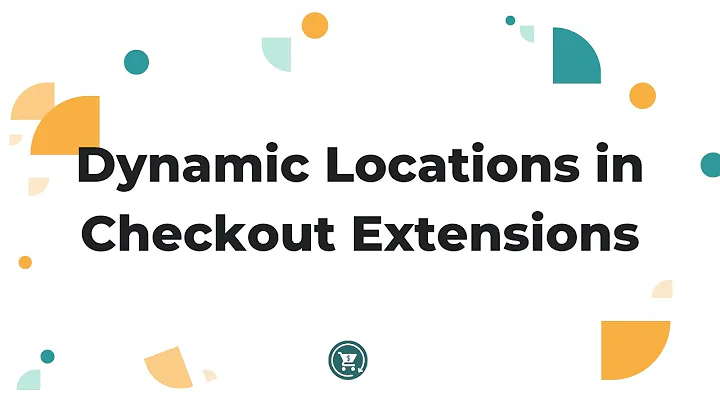Shopify vs Magento: Which E-Commerce Platform is Right for You?
Table of Contents:
- Introduction
- Pros of Shopify
- Better Credit Card Rates
- Better and Cheaper Templates
- Better Add-Ons and Apps
- Integration with Pinterest and Product Listing Ads
- Pros of Magento
- Free (with additional hosting costs)
- Complete Ownership
- Greater Customization Options
- Cons of Shopify
- Need for Third-Party Apps
- Additional Fees for Third-Party Payment Gateway
- Cons of Magento
- Costs for Hosting
- Limited Support
- Technical Complexity
- Conclusion: Shopify is the Winner
- How to Get Started with Shopify or Magento
- Additional Resources
- FAQs
Shopify vs. Magento: Which E-Commerce Platform Should You Choose?
In the world of e-commerce, choosing the right platform for your online store is crucial. Two popular options that often come up in conversations are Shopify and Magento. Both have their pros and cons, but ultimately, one may be more suitable for your specific needs. In this article, we'll delve into the features and benefits of both platforms and help you make an informed decision.
1. Introduction
When it comes to setting up an e-commerce store, you have two main options: Shopify and Magento. Shopify is a hosted shopping cart, meaning that your website is hosted by Shopify itself. On the other hand, Magento is a non-hosted shopping cart, allowing you more control over your website's hosting and server. In this article, we will compare the pros and cons of both platforms to help you decide which one is the best fit for your e-commerce business.
2. Pros of Shopify
2.1 Better Credit Card Rates
One of the major advantages of Shopify is that it offers better credit card rates compared to Magento. By opting for Shopify, you can save money on transaction fees and keep more profits in your pocket.
2.2 Better and Cheaper Templates
Shopify provides a vast selection of high-quality templates at a more affordable price point. The competition among template providers leads to higher quality standards and lower prices, benefiting Shopify users who can choose from a wide range of visually appealing and user-friendly designs.
2.3 Better Add-Ons and Apps
Shopify offers a wide variety of add-ons and apps that can enhance the functionality and features of your online store. These integrations allow you to customize your store's performance, marketing, and customer experience, giving you a competitive edge in the market.
2.4 Integration with Pinterest and Product Listing Ads
If you plan to sell products on Pinterest or utilize product listing ads, Shopify provides seamless integration for these channels. By connecting your Shopify store with Pinterest, you can tap into a massive audience and boost your online sales.
3. Pros of Magento
3.1 Free (with additional hosting costs)
One of the major advantages of Magento is that it is a free e-commerce platform. However, keep in mind that while the software itself is free, you will still need to pay for hosting and server costs. Bluehost is a recommended hosting provider for Magento.
3.2 Complete Ownership
Unlike Shopify, Magento gives you complete ownership of your online store. With Magento, you have the freedom to host your website on your own server, allowing for a higher level of control over your e-commerce operations.
3.3 Greater Customization Options
If you're looking for a highly customizable e-commerce platform that allows you to make extensive changes to your website's design and functionality, Magento is the way to go. It provides a deeper level of customization, making it suitable for businesses with specific branding requirements.
4. Cons of Shopify
4.1 Need for Third-Party Apps
While Shopify offers a wide range of features out of the box, there may be additional functionalities you want that are not included. To fill these gaps, you may need to rely on third-party apps, which can add extra costs and complexity to your e-commerce setup.
4.2 Additional Fees for Third-Party Payment Gateway
If you decide to use a third-party payment gateway instead of the built-in payment options provided by Shopify, you may incur additional fees. It's recommended to evaluate the available payment options before making a decision.
5. Cons of Magento
5.1 Costs for Hosting
Although Magento itself is free, you will need to consider the hosting costs associated with running a Magento store. As your site grows and attracts more traffic, you may need to upgrade to higher-tier hosting plans, leading to increased expenses.
5.2 Limited Support
Compared to Shopify, Magento offers limited support options. If you encounter any issues or require assistance, finding reliable support can be more challenging with Magento. It's essential to have the necessary technical knowledge or access to a developer experienced in Magento.
5.3 Technical Complexity
Magento is known for its technical complexity, requiring a higher level of technical expertise to set up and maintain compared to Shopify. If you are not familiar with website development or not tech-savvy, Magento may present a steeper learning curve.
6. Conclusion: Shopify is the Winner
After considering the pros and cons of both Shopify and Magento, it is evident that Shopify emerges as the winner for most e-commerce businesses. With better credit card rates, affordable and high-quality templates, extensive add-ons and app integrations, and seamless integration with Pinterest and product listing ads, Shopify offers numerous advantages to help you succeed in the competitive e-commerce landscape.
7. How to Get Started with Shopify or Magento
If you're ready to launch your online store, you can start a free 14-day trial with Shopify by visiting their website. For Magento, you can download the software for free, but you will need to organize hosting through a provider like Bluehost. Sign up using the provided links in this article to receive a complimentary one-on-one consulting session to help you kickstart your e-commerce journey.
8. Additional Resources
For more information and resources on setting up and growing your online store, consider signing up for the online store success pack, which provides access to checklists, a private Facebook group, and valuable tips for hiring virtual assistants. Stay up to date with our daily videos by subscribing to our YouTube channel.
9. FAQs
Q: Is Shopify suitable for beginners with limited technical skills?
A: Yes, Shopify is known for its user-friendly interface and ease of use, making it a great choice for beginners who may not have extensive technical skills.
Q: Can I migrate my store from Shopify to Magento or vice versa?
A: Yes, it is possible to migrate your store from one platform to another, but it can be a complex process. It's recommended to seek professional assistance when undertaking such migrations.
Q: Does Magento offer more advanced features than Shopify?
A: Magento does offer more advanced customization options and features compared to Shopify. However, it comes with a steeper learning curve and requires more technical expertise to fully utilize its capabilities.
Q: How long does it take to set up an online store with Shopify or Magento?
A: The time required to set up an online store depends on various factors, such as the complexity of your design, the number of products, and your familiarity with the platform. Generally, both platforms offer a straightforward setup process that can be completed within a few hours or days.
Q: Can I sell on Pinterest using Magento?
A: While it is possible to sell on Pinterest with Magento, the integration process may be more complicated compared to Shopify. Shopify offers seamless integration with Pinterest, making it easier to leverage this popular social media platform for sales and marketing.
Q: Can I switch from one e-commerce platform to another later on if needed?
A: Yes, it is possible to switch from one e-commerce platform to another, although it can involve some challenges. It's essential to carefully plan and execute the migration process to avoid disruption to your business operations.
Q: Which platform has better scalability options for a growing online store?
A: Both Shopify and Magento offer scalability options, allowing your store to grow as your business expands. However, Magento's customizable architecture may provide more flexibility for handling larger volumes of traffic and transactions.
Q: Does Shopify offer a mobile app for managing my store on the go?
A: Yes, Shopify provides a mobile app that allows you to manage and monitor your store from anywhere. The app offers functionalities like order management, product updates, and analytics, giving you the ability to run your business on the go.
Q: What are the best payment gateways supported by Shopify and Magento?
A: Both platforms support multiple payment gateways. Shopify has its built-in payment gateway called Shopify Payments, which is a popular choice. Magento offers compatibility with various payment gateways, including PayPal, Stripe, and Authorize.net, among others.
Q: Is there a limit to the number of products or customers I can have with Shopify or Magento?
A: Both Shopify and Magento can handle a large number of products and customers. However, it's important to review the limitations of the specific hosting plan you choose, as some plans may have restrictions on storage space, bandwidth, or the number of concurrent users.






















